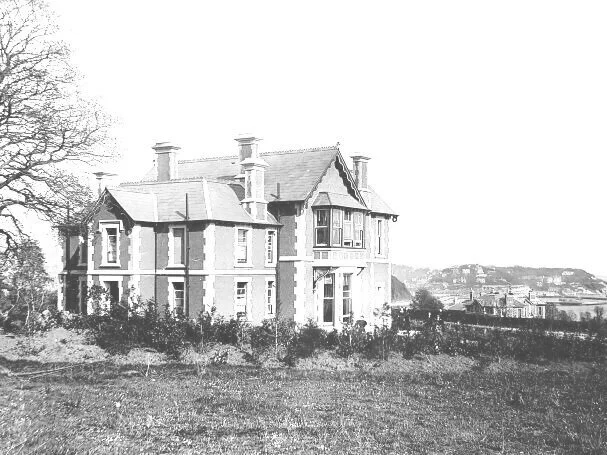Origin & History of the Fairfield Trust
The Fairfield Trust was formally registered as a charity in 1974, but the history of the house – and the inspiration that led to the foundation of the trust – originated a hundred years ago, following the end of World War 1.
The house was built in the late 19th century for Lucy Pfeil, who originally came from Hampstead in north London, and acquired a 99-year lease in 1898. She never married and, when she died in September 1914, it emerged to everyone’s surprise that she had left the house to her favourite nephew and godson, Alec Dick. Alec was running the Delta Metal Company in London and was busy providing metal for the armed forces after the outbreak of the First World War. So what should he do with this property in Torquay?
He was very interested in foreign missionary societies such as the China Inland Mission (CIM) and the Church of England Zenana Missionary Society (CEZMS). He learnt that missionaries often ran into financial difficulties when they returned home on furlough. This was particularly true of the CIM whose board considered that all their income should be devoted to the preaching of the Gospel in China. Their missionaries could not do this when in England so there was no money for them during their home leave. Alec therefore thought of giving Fairfield to one of these organisations as a home for missionaries on furlough.
Fortunately, he mentioned this idea to a friend who years later became his father-in-law: he told Alec that his proposal would not work because the mission would probably sell the property. God had given him the vision, so he should “Get in and do it!”
Alec therefore installed a Mrs Pugh as housekeeper of Fairfield and from then on, missionaries on leave from China or South America or anywhere else received a first class train ticket to Torquay, where they were met by a Mr Meek with his horse and carriage. Thus they were conveyed to Fairfield where Mrs Pugh in her best black satin dress received them, and they stayed at the house “like counts and countesses”. The guests who stayed at Fairfield included Martin Broomhall who was a nephew of CIM founder Hudson Taylor, and wrote many of his books in Torquay.
In principle this arrangement was still continuing in the 1950s when Alec Dick retired and sailed for Tanganyika (later Tanzania) with his son Alex, who was taking up a post as a missionary headmaster in Dodoma. However, there was by then less need for short-term accommodation for missionaries on furlough. Most developing countries no longer needed ‘missionaries for life’ but rather short-term specialists who could start churches and leave local people to get on with the work. Moreover, transport conditions had changed. The advent of air travel meant that the journey to China or to Africa now took hours rather than weeks or months. Many missionaries now returned home after two years instead of, say, ten years’ service.
Whether by instinct or good fortune, Alec conveyed Fairfield into Alex’s name well before he died in Tanzania in 1963, thus making it possible to avoid death duties on the property. So now it was Alex who had to answer the question “What is to become of Fairfield?”
Alex and his wife Valerie knew of two missionary couples who were about to retire after a lifetime of service abroad, but knew of no possible home in England. This led to the idea of converting Fairfield into flats for people like them.
However, a lawyer friend warned Alex, “If you do that, and you and your wife are stupid enough to get run over by a tram, and die at the wrong number of hours apart, there will be double death duties. Your executors will then be forced to turn out your residents and sell the property. To prevent that happening, you must separate yourself from the property by forming a Charitable Trust and dedicating Fairfield to it.” This is what led to the formal establishment of the Fairfield Trust in 1974 as Registered Charity No. 266699.
Soon afterwards, the Trust was able to acquire the next-door property and, renaming it Fairfield West, convert it into additional flats.
Alex and Valerie retained a flat at Fairfield, renting it from the trust. After Valerie died in 1993, Alex made Fairfield his main home and spent the remaining years of his life there. Even at the very end of his life, he was considering a major refurbishment project, and the Trust was able to bring his ideas to fruition with the help of a major legacy from his estate. This involved the gutting and rebuilding of Fairfield West and the total refurbishment of the whole of Fairfield.
To check the current availability of our homes, please see page “check availability”
Newly constructed Fairfield House in 1898
Fairfield House in 1919 - just prior to the first missionaries arriving



